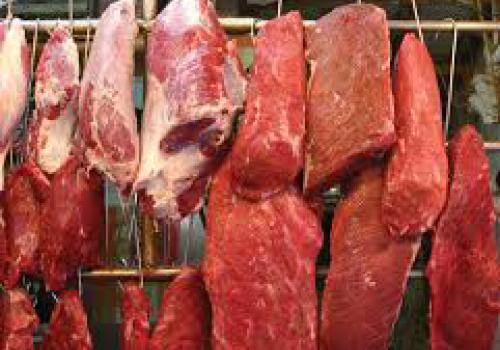Meat processors and exporters have urged the government to identify potential markets and take appropriate steps for enhancing export of halal meat to these destinations. According to the stakeholders, Pakistan has huge potential to cater the needs of countries with huge population and higher meat consumption rates.
“Institutions working for trade and export development should focus on those markets which have large population and higher meat consumption rates to enhance halal meat exports from Pakistan. China, Turkey, Malaysia, Indonesia, Central Asian States and other such countries, which have large population and considered as heavy importers of meat and meat products from around the world, should be targeted instead of focusing only Arab countries”, said Nasib Ahmad Saifi, chairman All Pakistan Meat Processors & Exporters Association (APMPEA). He suggested giving annual targets of growing exports to commercial officers posted in these countries and supporting meat exporters and processors to participate in exhibitions and fairs.
Saifi, a leading halal meat exporter, said that Pakistan as an Islamic country has all the potential to become a leader in this sector with special emphasis on halal and processed meat.
Despite all these facts, he said, meat exporters of Pakistan are facing furious competition from their counterparts like India, Brazil and African countries. “Governmental support for meat export sector is scarce. Even the procedures to handle meat exports are troublesome”, he lamented. He said that the government should pay attention to these hiccups besides arranging repatriation of money of livestock exporters stuck abroad due to default of certain buyers.
Giving proposals to make room in the trillions of dollars halal products market, Saifi said that that practice of allocating Live Animal Export special quotas should be abolished and only value-added products of livestock should be allowed to export.
A ban on slaughtering of female animals should be imposed and a mechanism should also be placed for its effective implementation, he proposed. He said to fetch lucrative international markets meat processors require an ample quantity of livestock at a suitable price to process. Growing population of the country has already exhausted the livestock supplies, over and above animal smuggling has deepened the crises. This issue can only be resolved through stoppage of livestock smuggling which is one of the important causes of hike in prices.
He also proposed setting up halal zones (Animal Free Zones) in Cholistan and actual owners of slaughterhouses should be allotted land for livestock farming.
Advocating a better coordination between slaughterhouses and the department, he suggested issuance of quarantine certificate online and linking both the stakeholders for animal health data sharing to know the reasons for animal rejection. He was of the view that it may help identify the onset of an animal disease outbreak.
Halal Meat Export industry is potentially very productive even in its current stage of infancy. Almost all the stakeholders have invested their lifetime investments in this sector of producing export quality product for the world. Pakistani exporters are directly competing with the global giants by employing state of the art equipment along with quality world class services.
Infant but competitive and productive industry of Pakistan should be given due priority and privileges such as zero-rated taxation, facilitation and relaxations in various phases of production, transportations and export to make enable them to compete in global economy with more courage and confidence. The halal meat industry has a potential of expanding the export in this sector four folds in no time, provided patronage by the government to this extremely neglected industry as well, he said.
